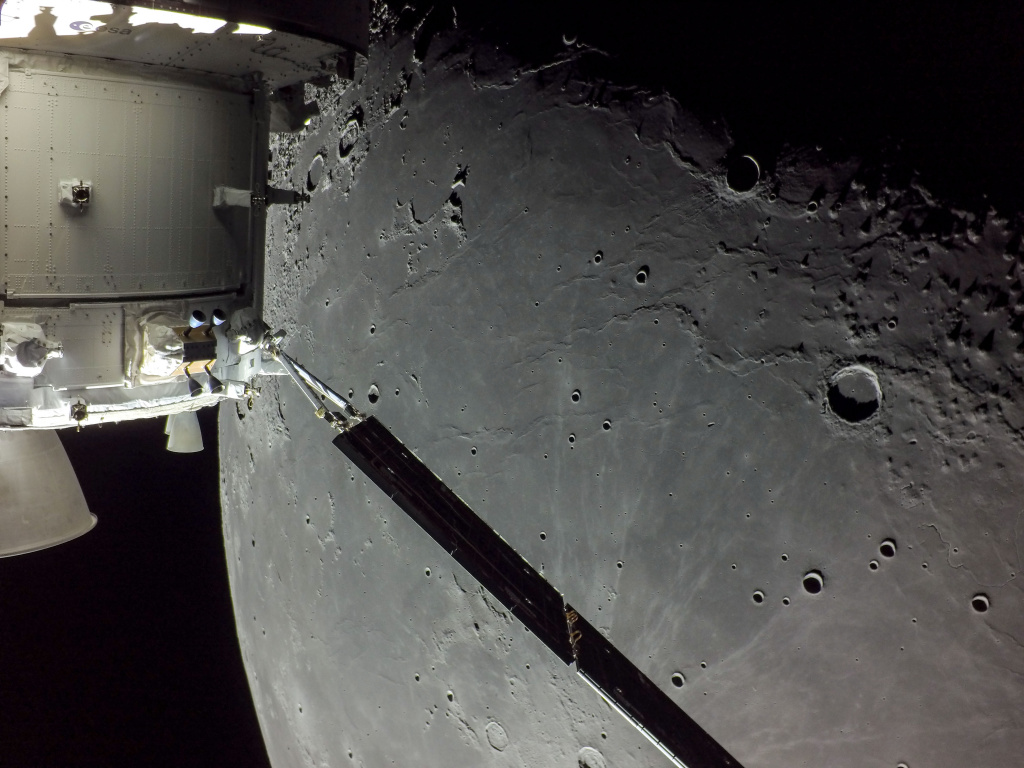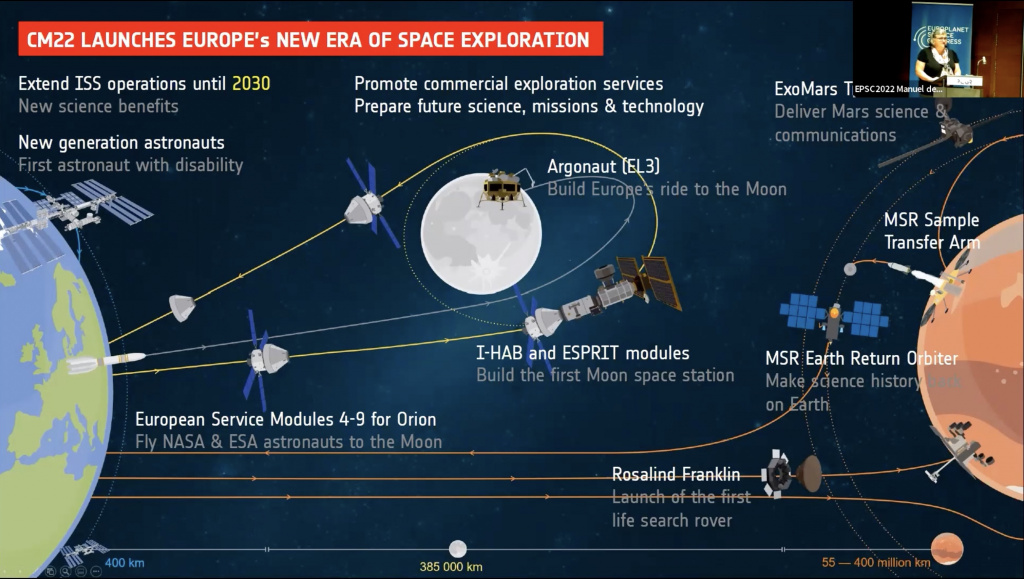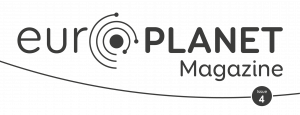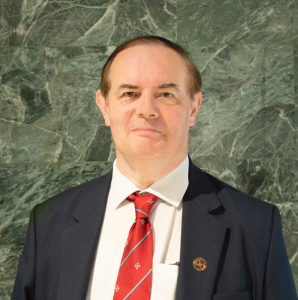The Last Word The Last Word – A Time for Optimism
The Europlanet Society’s President, Nigel Mason (University of Kent/Atomki), reflects on positive news for the planetary science community.
Read article in the fully formatted PDF of the Europlanet Magazine.
At the European Space Agency (ESA) Ministerial Council, held in Paris on 22- 23 November 2022, government ministers representing ESA’s Member States, Associate States and Cooperating States agreed to a budget of €16.9 billion for the period of 2023-27. This is a record 17% increase on the budget agreed at the last ESA Ministerial Council in 2019. Coupled with increases in national spending being announced by many of the Member States, this sets us on track for something of a golden age of planetary science conducted by European scientists and engineers.

The decision to maintain ESA’s exploration of Mars by pursuing the ExoMars mission and participating in the Mars Sample Return campaign is welcomed by our community. There are exciting opportunities to plan for exploration of the outer planets, which will help fully reveal the nature of our own Solar System, in addition to the fleet of ongoing and upcoming ESA missions like BepiColombo (to Mercury), Juice (to Jupiter and its icy moons), EnVision (to Venus) and Comet Interceptor (to a pristine comet). The CHEOPS, PLATO and Ariel missions build upon the rich heritage and infrastructure built up in Europe for the study of exoplanets and will enable us to begin the search for biomarkers and life beyond our Solar System.
Europe has made a funding commitment to the International Space Station (ISS) until 2030, allowing time to prepare properly for the post-ISS phase. ESA is also playing a part in lunar exploration missions that will establish a permanent presence for humanity beyond the confines of Earth. It will provide vital modules (Argonaut, formerly called the European Large Logistics Lander) to transport cargo, infrastructure and science equipment to the lunar surface. ESA is also developing the International Habitation (I-HAB) and European System Providing Refuelling, Infrastructure and Telecommunications (ESPRIT) modules, key elements of the first lunar space station, Gateway, which will permanently orbit the Moon.
Such a commitment, even at a time of conflict on our continent, recognises that space will play a major role in all our futures, with commercial uses of space increasingly transforming our world. Thus, it is vital to build a strong workforce in the space sector, so we have a responsibility to enthuse school-age students and encourage them to consider a career within our community (see page 46).
In creating a legal entity (AISBL) for the Europlanet Society, we aim to secure a sustainable, inclusive infrastructure to support the pan-European planetary science community. Through the activities of the Europlanet Early Careers (EPEC) network, we aim to support early career researchers in recognition that they are the mission leaders and workforce of the future. Through the industry working group, we seek to foster those academic-industry collaborations that are pivotal to future space missions and the Space 4.0 concept of joint public-private partnerships. Through EPSC and other meetings, in collaboration with other European astronomy and space networks, we provide a showcase for planetary science through which we can highlight to policy makers and citizens that Europe is leading the way in research and technology.

However, we can only achieve these goals if the community supports us by joining the Society. The next 12 months will be a key time for growth. The new President Elect of the Europlanet Society, Ann Carine Vandaele, has an exciting vision for leading us through the critical years ahead (see page 24). Every member can aid us by both recruiting in their institution and volunteering to serve in the Regional Hubs and other Society Committees. With the new ESA, NASA and national space strategies being announced and enacted, as we look ahead to 2023, there has never been a more exciting time to participate in European planetary science!



